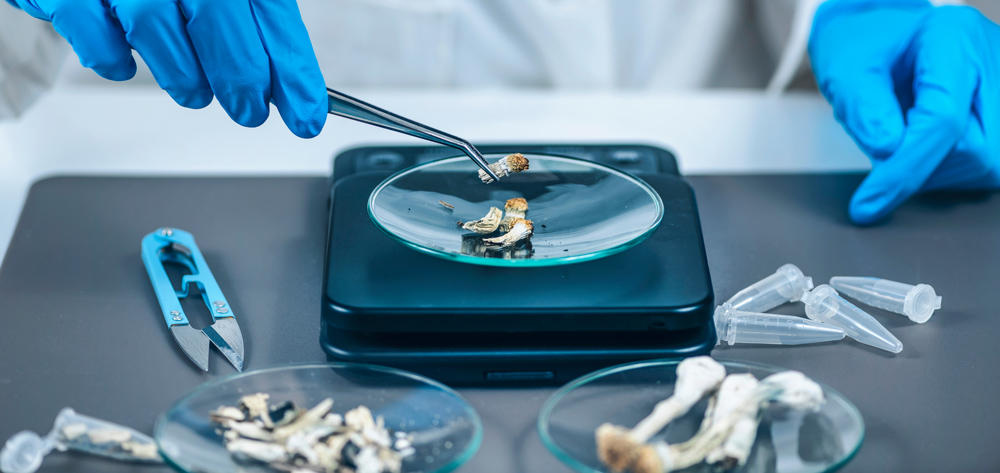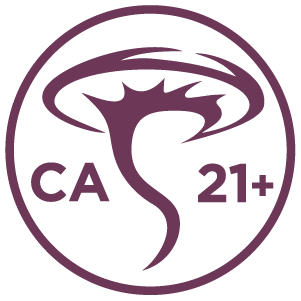Psychedelics Licensing Updates – The California Psilocybin Initiative 2024 / DECRIMCA

In recent years, the conversation surrounding psychedelic substances has shifted dramatically.
What was once stigmatized and misunderstood is now being reevaluated for its potential therapeutic and transformative benefits. The push for decriminalization and legalization of psychedelics has gained significant traction, with advocates citing the need for a more enlightened approach to mental health and consciousness exploration.
In this blog post, we will delve into the efforts of organizations like Decriminalize California (https://decrimca.org/) and discuss the next steps and potential outcomes of magic mushrooms coming out of the black market.
Currently there is no ability to apply for a business license to sell psilocybin but there is potential for California to provide ability to cultivate, manufacture, sell, possess, transport and operate psilocybin mushroom businesses in 2025.

INITIATIVE MEASURE TO BE SUBMITTED DIRECTLY TO THE VOTERS: The Attorney General of California has prepared the following circulating title and summary of the chief purposes and points of the proposed measure:
“For individuals 21 and over, decriminalizes under state law the cultivation, manufacture, processing, distribution, transportation, possession, storage, sale, and personal use of psilocybin mushrooms, the hallucinogenic chemical compounds contained in them, and edible products and extracts derived from them. Allows “qualified healthcare practitioners” to use psilocybin mushrooms for research, treatment,
and therapy. Requires state to implement qualification requirements and protocols for psilocybin-assisted therapy created by an unspecified “independent professional certifying body.” Read the full initiative

The Rising Tide of Decriminalization
Decriminalize California, a grassroots organization, has been at the forefront of the movement to decriminalize psychedelic substances, including psilocybin mushrooms, commonly known as magic mushrooms. Their efforts focus on reducing the criminalization of individuals who use or possess psychedelics for personal use, viewing addiction as a public health issue rather than a criminal matter.
Currently, various cities across the United States have already decriminalized the possession of small amounts of psilocybin mushrooms, signaling a changing perspective on these substances. These localized successes have laid the groundwork for broader state-level initiatives and possible future nationwide changes.
What would CPI 2024 do in California?
Psilocybin Mushrooms. The medical, therapeutic, religious, spiritual, and recreational use of Psilocybin Mushrooms by adults 21 years of age and over, including but not limited to the cultivation, manufacturing, processing, distribution, transportation, possession, storage, and production of edible products and extracts (with or without solvents) derived from Psilocybin Mushrooms for consumption, social consumption, on-site consumption, sales at public events, sales at farmers’ markets, and retail sales, whether or not for profit, shall be lawful in this state and is a matter of statewide concern.
Age Requirement for Consumption – 21+
Cultivation – Psilocybin Mushrooms indoors, or outdoors on private property to which access is restricted by fencing where such cultivation is not visible from outside such property, and with the consent of the owner of such property.
Manufacturing – Means the manufacture, planting, cultivation, growing, harvesting, production, preparation, propagation, compounding, conversion, or processing of a Psilocybin Mushroom product, either directly or indirectly by extraction from substances of natural origin, or independently by means of chemical synthesis, or by a combination of extraction and chemical synthesis, and includes any packaging or repackaging of the psilocybin product or labeling or relabeling of its container.
Distribution – Starting January 1, 2025, any Psilocybin Mushroom Business operating on land that is zoned for commercial agricultural production and approved by the CDFA for food production can begin the cultivation, manufacturing, and wholesale distribution of Psilocybin Mushrooms. Starting April 19, 2025, any business that is incorporated in California and possesses a California Seller’s Permit can begin retail sales of Psilocybin Mushrooms to adults 21 years of age and over.
Possession – Any private individual or California incorporated entity can possess an unlimited amount of magic mushrooms or psilocybin infused products.
Transport – Allowed within the borders of California.
Psilocybin Mushroom Business – is a California for-profit or nonprofit entity or natural person that is a resident of California that cultivates, manufactures, wholesales, or retails Psilocybin Mushrooms, and includes, but is not limited to, Psilocybin Mushroom cultivators, Psilocybin Mushroom manufacturers, Psilocybin Mushroom distributors, Psilocybin Mushroom retailers, analytical laboratories that test Psilocybin Mushrooms, and medical Psilocybin Mushroom organizations.
Analytical Testing – Any laboratory that is approved and permitted by the CDFA and holds an active ISO/IEC 17025 accreditation may test the Psilocybin content of Psilocybin Mushrooms.
Taxes – Psilocybin Mushrooms that are sold or grown for medical, therapeutic, religious, or spiritual purposes shall not be subject to any sales, use, or excise tax. Products labeled and sold as dietary supplements shall be taxed at the local sales tax rate at the point of sale.
Labeling – GOVERNMENT WARNING: THIS PACKAGE CONTAINS PSILOCYBIN, A SCHEDULE I CONTROLLED SUBSTANCE. KEEP OUT OF REACH OF CHILDREN AND ANIMALS. PSILOCYBIN MAY ONLY BE POSSESSED OR CONSUMED BY PERSONS 21 YEARS OF AGE OR OLDER UNLESS RECOMMENDED BY A MEDICAL PROFESSIONAL. CONSUMPTION OF PSILOCYBIN IMPAIRS THE ABILITY TO DRIVE AND OPERATE MACHINERY. PLEASE USE EXTREME CAUTION.
California Psilocybin Symbol – The Symbol shall be no smaller in size than one half (.5) inch by one half (.5) inch, shall be printed legibly, and be readily visible to alert consumers that the product is or contains Psilocybin. The symbol shall not be altered or cropped in any way, other than to adjust the sizing for placement on the packaging.
The Shift Towards Legalization and Licensing:
While decriminalization represents a step forward, the ultimate goal for many advocates is the legalization and responsible regulation of psychedelics. The model for legalization and licensing could mirror the frameworks already in place for marijuana in some states. By legalizing and regulating psychedelic substances, proponents hope to foster a safer environment for their use, prevent contamination and impurities, and ensure proper dosing for therapeutic purposes.
With increasing evidence supporting the therapeutic potential of psychedelics in treating conditions like depression, anxiety, and post-traumatic stress disorder (PTSD), licensing may open the door for medical professionals to administer these substances in controlled settings. Such licensing could also create opportunities for specialized therapists and clinics to offer psychedelic-assisted therapy to those in need.
Next Steps and Potential Outcomes:
While the journey towards full legalization and licensing of psychedelics may be complex and challenging, several key steps can be anticipated:
- Research and Clinical Trials: The scientific community will likely continue to conduct more research and clinical trials to understand the potential benefits and risks of psychedelic substances. These studies will play a crucial role in shaping public opinion and influencing policymakers.
- Grassroots Advocacy: Organizations like Decriminalize California will continue to mobilize and advocate for change. Grassroots movements have proven to be instrumental in promoting the decriminalization and destigmatization of psychedelics.
- State-level Initiatives: As seen in the case of marijuana, individual states may take the lead in implementing their own policies regarding psychedelic substances. Successful state-level initiatives could inspire others to follow suit.
- Public Education: Increasing public awareness and education about psychedelics’ therapeutic potential and safe use will be essential in garnering support for legalization and licensing.
- Regulation and Licensing Frameworks: Policymakers will need to develop comprehensive regulations and licensing frameworks that prioritize safety, accessibility, and responsible use.
The journey towards the legalization and licensing of psychedelics is undoubtedly a complex and dynamic process. Organizations like Decriminalize California are instrumental in challenging outdated views on these substances and promoting more enlightened policies.
As research continues to unveil the therapeutic potential of psychedelics, it is likely that more states will explore decriminalization and eventually legalization, opening the door to a new era of mental health treatment and consciousness exploration. However, it is crucial to proceed thoughtfully, with an emphasis on safety, education, and responsible use, to maximize the positive impact of these transformative substances on individuals and society as a whole.
Where is Psilocybin Legal?
As of September 2021, the legal status of psilocybin (the active compound in magic mushrooms) varied from country to country and within some regions of certain countries. Please note that laws can change over time, and it’s essential to verify the current legal status of psilocybin in your specific location. Here are some places where psilocybin was either fully or partially legal.
- Brazil: In 2020, Brazil’s health regulatory agency, Anvisa, reclassified psilocybin and other psychedelic substances from the list of banned drugs to the list of controlled substances for medical and scientific use. This move opened the possibility for medical research and therapeutic applications of psilocybin.
- Jamaica: Although psilocybin remains illegal for recreational use, Jamaica has a history of cultural and religious use of psychedelic substances, including magic mushrooms. Some Rastafarian communities in Jamaica use sacramental mushrooms in religious ceremonies.
- Netherlands: Psilocybin-containing mushrooms, also known as “magic truffles,” are technically legal in the Netherlands under certain conditions. Fresh magic truffles are sold in smart shops, and possession and use are tolerated up to a certain amount.
- Portugal: Portugal has decriminalized the possession and use of all drugs, including psilocybin, for personal use. Instead of criminal charges, individuals caught with small amounts of drugs may face fines or be required to attend a Commission for the Dissuasion of Drug Addiction.
- Canada: In August 2020, the Canadian Minister of Health granted an exemption to four terminally ill patients to use psilocybin for end-of-life care. However, this exemption is limited to these specific cases and not a blanket legalization.
- United States: In the United States, there are several cities and jurisdictions that have decriminalized the possession and use of psilocybin. As of 2021, cities like Denver, Colorado, and Oakland, California, have decriminalized psilocybin mushrooms, making enforcement of laws against personal possession and use of the substance a low priority.
It’s important to emphasize that even in places where psilocybin may be decriminalized or legally available for medical or religious use, distribution and sale for recreational purposes may still be illegal.
Additionally, laws can change, and the legal status of psilocybin may evolve in different regions over time. Therefore, it is always recommended to check the most recent local laws and regulations regarding psilocybin and other psychedelic substances in your area.




